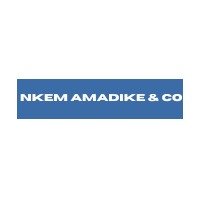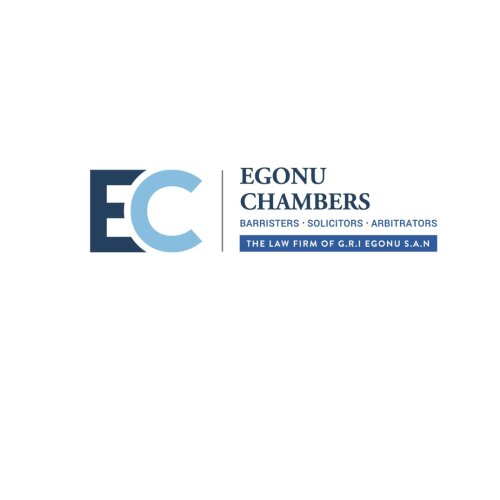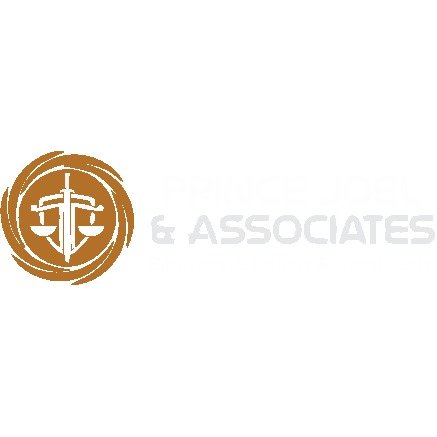Best Sanctions & Export Controls Lawyers in Onitsha
Share your needs with us, get contacted by law firms.
Free. Takes 2 min.
List of the best lawyers in Onitsha, Nigeria
About Sanctions & Export Controls Law in Onitsha, Nigeria
Sanctions and export controls law refers to the rules and regulations governing trade between Nigeria and other countries, particularly restrictions that apply to goods, services, and technology. In Onitsha, a bustling commercial hub in Anambra State, these laws are especially important due to the high volume of local and international trade. Sanctions are restrictions imposed by the government or international bodies that limit trade with certain countries or entities, while export controls regulate the export of goods, technology, and sensitive information to ensure national security and to comply with Nigeria's international obligations. Understanding these laws is crucial for businesses, traders, and individuals involved in import and export activities.
Why You May Need a Lawyer
Navigating sanctions and export controls can be complex, especially in a busy trade center like Onitsha. Legal assistance is often necessary in the following situations:
- If you are starting a business that deals with import or export of goods that may be restricted or controlled
- If your business is being investigated for possible violation of sanctions or export control laws
- If you need to apply for an export license or other relevant permits
- If your goods have been seized or detained by customs authorities
- If you are facing fines, penalties, or criminal charges due to non-compliance
- If you need advice on compliance with both Nigerian and international sanctions and export control regulations
A lawyer who specializes in these areas can help you understand your rights and obligations, avoid costly mistakes, and represent you in dealings with authorities.
Local Laws Overview
Nigeria enforces a combination of local and international laws regarding sanctions and export controls. Key aspects important in Onitsha include:
- Customs and Excise Management Act: This law provides the legal framework for the import and export of goods, and empowers customs to inspect, detain, and seize goods that violate regulations.
- Nigerian Export Prohibition Act: Certain items such as raw hides, timber, and unprocessed minerals are banned from export. Violations can lead to confiscation and prosecution.
- Foreign Exchange (Monitoring and Miscellaneous Provisions) Act: Regulates the use of foreign currency for international transactions, which affects payment for imports and exports.
- Central Bank of Nigeria (CBN) Circulars and Directives: These include lists of items prohibited for import/export, and compliance requirements for financial transactions involving foreign parties.
- International Obligations: Nigeria sometimes enforces sanctions imposed by the United Nations or other international bodies, especially relating to money laundering, terrorism, or trade with sanctioned countries.
Local enforcement is handled principally by the Nigeria Customs Service, with support from the National Agency for Food and Drug Administration and Control (NAFDAC), Standards Organization of Nigeria (SON), Nigerian Export Promotion Council (NEPC), and the Nigerian Police Force.
Frequently Asked Questions
What are sanctions and export controls?
Sanctions are restrictions on trade with specific countries, companies, or individuals, often to achieve foreign policy or security objectives. Export controls regulate or restrict how goods, technology, and sensitive information leave the country.
Who enforces sanctions and export controls in Onitsha?
The Nigeria Customs Service and other relevant agencies such as NAFDAC, SON, and NEPC are responsible for enforcement, along with law enforcement agencies.
How do I know if a product is subject to export controls?
Products subject to export controls are usually listed in official gazettes, circulars, or directives by government agencies. A lawyer or customs agent can help you determine if your product is affected.
What happens if I violate export control laws in Onitsha?
Violations can lead to seizure of goods, fines, criminal prosecution, revocation of licenses, and being blacklisted from future trade activities.
Are there items I cannot import or export from Onitsha?
Yes, items such as certain pharmaceuticals, firearms, raw agricultural products, and goods from sanctioned countries are strictly controlled or prohibited.
Do I need a license to export goods from Onitsha?
In many cases, yes. Licenses from agencies such as NEPC or other regulatory bodies may be required depending on the nature of the goods.
Can I send money to or receive money from sanctioned countries?
Generally, transactions involving sanctioned countries or individuals are not permitted and can result in penalties or legal action.
I received a notice of goods seizure at Onitsha port - what should I do?
Contact a lawyer immediately. Your lawyer can help challenge the seizure, liaise with authorities, and guide you through the recovery process.
How can I ensure compliance with export controls?
Stay informed about current regulations, maintain detailed records, seek professional legal advice, and ensure you have all necessary licenses and documentation before engaging in export transactions.
What government agencies should I contact for export control information in Onitsha?
Contact the Nigeria Customs Service, NEPC, NAFDAC, SON, and the CBN for guidance on specific products and regulations.
Additional Resources
If you need more information or support regarding sanctions and export controls in Onitsha, the following resources can be helpful:
- Nigeria Customs Service (NCS): For import and export procedures, prohibited goods lists, and compliance guidance.
- Nigerian Export Promotion Council (NEPC): For export licensing, market opportunities, and compliance advice.
- National Agency for Food and Drug Administration and Control (NAFDAC): For regulations related to food, drugs, cosmetics, and chemicals.
- Standards Organization of Nigeria (SON): For quality standards and compliance requirements.
- Central Bank of Nigeria (CBN): For regulations on foreign exchange and international payments.
- Nigerian Bar Association (Onitsha branch): For finding qualified lawyers specializing in trade, sanctions, and export controls.
Next Steps
If you are involved in, or planning to engage in, import or export activities in Onitsha, here is how you can proceed:
- Identify whether your products or business activities fall under any sanctions or export controls.
- Consult with a lawyer who is experienced in trade, customs, and sanctions law in Nigeria, particularly in Onitsha.
- Gather and review all necessary documentation regarding your goods and business transactions.
- Contact the appropriate government agency for clarification on any uncertainties or licensing requirements.
- If you face any allegations or enforcement actions, seek legal representation immediately to protect your interests.
- Continually update your knowledge of current laws since regulations can change frequently, especially due to international developments.
By taking these steps, you will ensure you operate in compliance with all relevant sanctions and export control laws, protecting yourself and your business from unnecessary risk.
Lawzana helps you find the best lawyers and law firms in Onitsha through a curated and pre-screened list of qualified legal professionals. Our platform offers rankings and detailed profiles of attorneys and law firms, allowing you to compare based on practice areas, including Sanctions & Export Controls, experience, and client feedback.
Each profile includes a description of the firm's areas of practice, client reviews, team members and partners, year of establishment, spoken languages, office locations, contact information, social media presence, and any published articles or resources. Most firms on our platform speak English and are experienced in both local and international legal matters.
Get a quote from top-rated law firms in Onitsha, Nigeria — quickly, securely, and without unnecessary hassle.
Disclaimer:
The information provided on this page is for general informational purposes only and does not constitute legal advice. While we strive to ensure the accuracy and relevance of the content, legal information may change over time, and interpretations of the law can vary. You should always consult with a qualified legal professional for advice specific to your situation.
We disclaim all liability for actions taken or not taken based on the content of this page. If you believe any information is incorrect or outdated, please contact us, and we will review and update it where appropriate.











